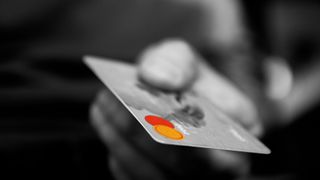According to the latest poll (opens in new tab) by CreditCards.com, rising numbers of new borrowers are also looking to take out credit cards (opens in new tab) as a means to help them cope with the pressures that they face. Nearly half of U.S. adults (47%) - or around 120 million Americans - now say they have credit card debt, up from 43% in a similar survey conducted in early March. The figures obviously make for alarming reading, and almost half of debtors are currently stressed about their credit card debt (45%) - out of those, 15% admitted to being “very” stressed. However, whether people are waiting on their claim for unemployment benefit (opens in new tab), or for their coronavirus stimulus check (opens in new tab) to arrive, households are doing what they must to pay their bills and put food on the table.
How to pay off credit card debt
The encouraging news is that most borrowers seem to have thought about how to pay off their credit card debt (opens in new tab), with over half of those surveyed (60%) intending to pay more than the minimum monthly payment amount to try and keep themselves on a manageable path. A much smaller percentage (13%) recognised the possibility of using a balance transfer card to manage their debt (opens in new tab), while the same proportion said they would look to make only the minimum payment each month. Taking out one of the best personal loans (opens in new tab) was among the lesser considered repayment options, with just 6% of respondents planning to use this route. Separate research recently found growing numbers of Americans have been turning to personal loans to consolidate debts (opens in new tab), as they seek to take advantage of the comparatively lower interest rates that loans can often provide. However, of considerable concern is the 13% of credit card borrowers who either don’t have a plan or don’t intend on paying anything at all.
Contact your credit card issuer
Failing to make only the minimum payment will usually see debt and charges rapidly build up, and for such borrowers inertia should not be an option. Contacting credit card issuers is a must and, at present, most credit card borrowers are eligible for help from issuers (opens in new tab) that would not have been offered before the coronavirus struck. Only 7% of those asked about their repayment strategy said they would ask their credit card issuer for a break, yet many providers are extending payment deadlines, lowering annual percentage rates (APRs), and waiving late fees, but it is up to the borrower to make contact to see how they can help. “I definitely recommend asking your card issuer for a break,” said Ted Rossman, industry analyst at the credit card comparison site. “You can potentially skip a payment or two (sometimes even without interest), get a lower interest rate, get other fees waived and protect your credit score. Also, there isn’t a risk involved with asking your issuer for help during the coronavirus crisis. The worst that can happen is they say no, but most of the time they’ll do you a favor.” Inevitably, some will still find themselves struggling to cope with their debts, even if they have a plan in mind and the best of intentions to repay. For these people, contacting the best debt consolidation companies (opens in new tab) to find out how it could be possible to better manage the debt is a must. Importantly, anyone worried about their debt should look to contact someone, whether it is family, friends, a card issuer, or one of the services or organizations listed on the Federal Government website (opens in new tab).
